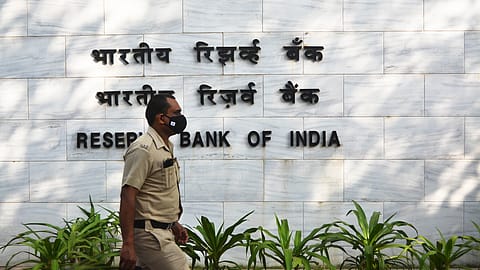RBI deputy governor Swaminathan lays out five-point agenda for urban co-operative banks
In his valedictory address at a seminar in Pune, RBI Deputy Governor Swaminathan J outlines a five-point agenda for UCBs to build resilience and retain depositor trust in the digital era.

Swaminathan J, deputy governor of the Reserve Bank of India emphasised, on Friday, the necessity for a renewed focus on responsible governance, professional management, and secure digital transformation to strengthen the resilience of the co-operative banking sector.
Swaminathan was delivering the valedictory address at the College of Agricultural Banking in Pune, addressing the directors of Urban Co-operative Banks (UCBs). He emphasised the significance of the statement, noting that UCBs have historically served segments overlooked by commercial banks through their strong community ties and tailored services. He emphasised that this distinctive role carries with it the obligation to uphold prudence, accountability, and steadfast trust among depositors.
In light of the International Year of Cooperatives, which emphasises the theme ‘Cooperatives Build a Better World’, Swaminathan has proposed a comprehensive five-point agenda aimed at enhancing long-term sustainability and public trust in UCBs.
1. Governance and accountability: Swaminathan emphasised that the primary cause of distress within UCBs has frequently been attributed to inadequate internal governance, rather than external shocks. He called on directors to take an active stance in oversight, guarantee transparency in related-party transactions, and cultivate independent, well-informed Boards. “Your responsibility extends beyond simply endorsing decisions; it is imperative to pose challenging questions and guarantee ethical practices,” he stated.
2. Strong risk and compliance frameworks: The Deputy Governor emphasised the critical role of risk management, internal audit, and compliance as the “eyes and ears” of the organisation, advocating for their operational independence and direct access to the Board. He urged directors to proactively collaborate with these assurance functions to detect potential red flags promptly and adjust their strategies accordingly.
3. Constructive engagement with auditors and inspectors: Swaminathan emphasised the importance of fostering collaborative relationships with auditors and RBI inspectors, describing them as essential partners in maintaining institutional health. The RBI’s inspection reports should serve as instruments for proactive correction rather than merely as documents for identifying faults.
4. Responsible technology adoption: Acknowledging the digital ambitions of numerous UCBs, he cautioned against the rapid implementation of technology without a thorough evaluation of preparedness. “Cybersecurity transcends mere technical concerns; it is fundamentally a governance challenge,” he stated, calling on Boards to synchronise digital strategies with their risk appetite, infrastructure, and the demands of customers.
5. Collective strength via the umbrella organisation: Swaminathan emphasised the role of the National Urban Cooperative Finance and Development Corporation Ltd. (NUCFDC) as a collaborative platform capable of tackling issues related to technology, compliance, and liquidity. “This Umbrella Organisation has the potential to enhance the capabilities of smaller UCBs significantly,” he stated, highlighting the importance of active engagement.